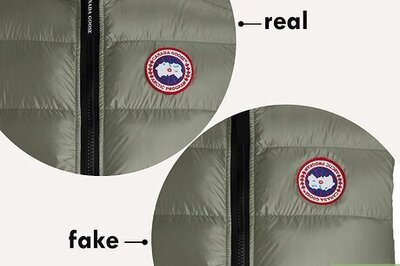
views
New Delhi: The Associated Chambers of Commerce and Industry of India (ASSOCHAM) has called for streamlining policies and tax holidays to boost healthcare facilities across the country, especially in tier two and tier three cities.
Due to huge capital outlay involved in setting up, hospitals may take four to five years to break even. As the deduction is available for five consecutive years from the previous year in which the hospital starts functioning, they will not be able to obtain the benefit of tax holiday.
It is therefore necessary to extend the tax holiday benefit to enable companies to commit substantial investments required in the healthcare sector. This will also lead to growth of tourism and associated industries, said ASSOCHAM.
Further, 100 per cent deduction should be available to an undertaking deriving profits from the business of operating and maintaining a hospital located anywhere in India. At present, certain urban areas are excluded.
The tax break should be for 10 years, or hospitals should have an option to select five consecutive years from the initial 10 years of starting operations, said ASSOCHAM in its pre-Budget memorandum for 2011-12.
It said the percentage of weighted deduction on contributions made to an exclusive research and development (R&D) company should be increased from 125 to 175 per cent.
The existing rules do not specify if expenses incurred outside the R&D facility – like those on overseas trials, preparations of dossiers, consulting and legal fees for filings in the United States for new chemical entities and abbreviated new drug applications as approved by the Department of Scientific and Industrial Research – are eligible for weighted deduction.
Indian companies also bear huge costs in defending their patent rights and applications within and outside the country. ASSOCHAM said these costs should be specifically made eligible for a weighted deduction. It should be clarified that where the risk of doing research is assumed by a company, the entire cost of R & D activities – whether outsourced or undertaken in-house – is eligible for weighted deduction in the hands of company undertaking the risk.
Pharmaceutical discovery is a lengthy, risky and expensive proposition. Hence provision should specifically allow weighted deduction in respect of expenses incurred outside the R & D facility which are necessitated by industry’s current business needs.
Medicines, bulk drugs, medical equipment and implants are essential to provide healthcare facilities. These should be either exempted or kept under a lower tax rate under the proposed GST regime.
High rate of taxation on these products will make life-saving treatment, surgery and treatment of chronic diseases unaffordable for a large section of the society, said ASSOCHAM.



















Comments
0 comment